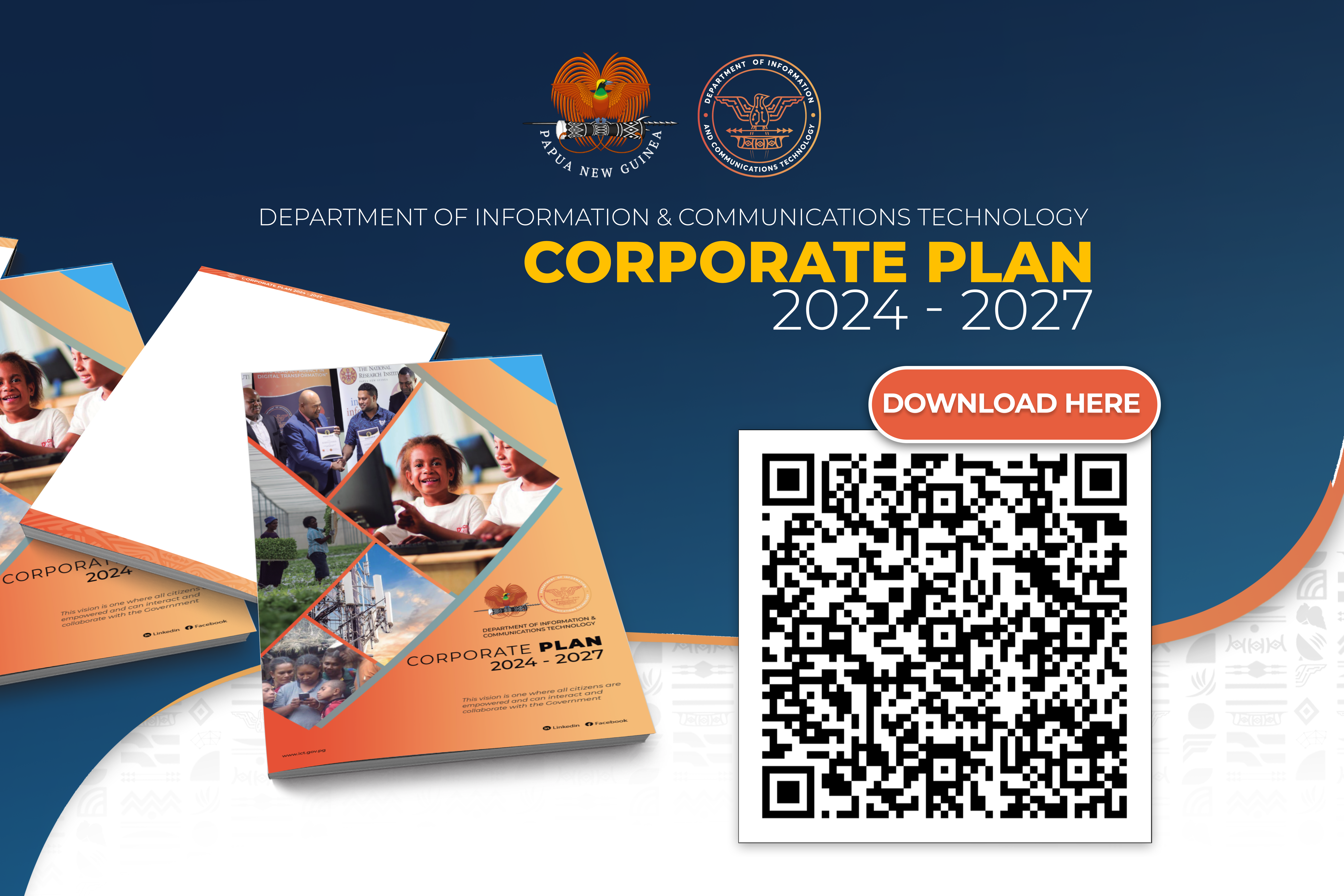Tuesday 8 October, 2024
The Department of Information and Communications Technology officially launched its Corporate Plan 2024 -2027 during the recent Digital Transformation Summit 2024.
The Corporate Plan outlines the department’s strategic vision for driving Papua New Guinea’s digital transformation in the coming years.
ICT Minister Hon. Timothy Masiu highlighted the Department’s journey since 2020, stating, “Since launching its first Corporate Plan in 2020, the Department of ICT today unveils its new Corporate Plan 2023 – 2027.”
“The new Corporate Plan triggers further restructure in the Department with refined focus on functional areas of digitalization, cloud technologies, cybersecurity, and eSafety where we will push to further improve our global ranking and development indicators in the digital space,” Minister Masiu said.
He also touched on the growing role of digital media in public engagement, noting, “Under the new Corporate Plan, the Department is also giving equal prominence to public content and dissemination, leveraging the various digital media technologies.”
Secretary of the Department, Mr. Steven Matainaho, expressed his pride in the collaborative efforts that shaped the plan.
“I am honored to present the Corporate Plan for the period 2024-2027, a transformative roadmap that symbolizes our collective dedication to shaping a digitally empowered future for Papua New Guinea,” Secretary Matainaho stated.
“This plan is informed by the recent approved policies, legislations, and Plans, drawing insights from extensive collaboration, expertise, and commitment from stakeholders across various sectors.”
The Secretary also highlighted the importance of integrating various governance initiatives.
“The integration of the Digital Government Act 2022, the Digital Government Plan 2023-2027, and the Medium-Term Development Plan IV has equipped us with a strategic framework to reassess our strategies.”
“This Corporate Plan encapsulates our shared vision of embracing innovation, nurturing collaboration and partnerships, and championing inclusivity. It lays the foundation for a new era of governance that connects with citizens and represents progress.”


